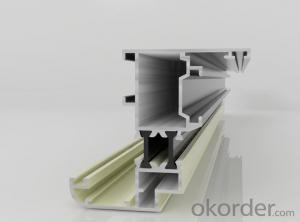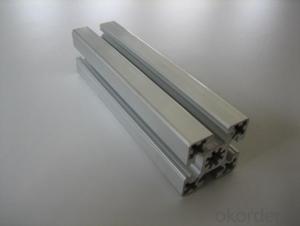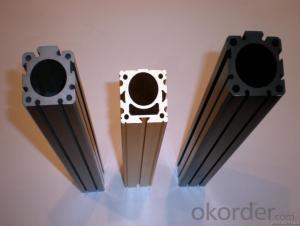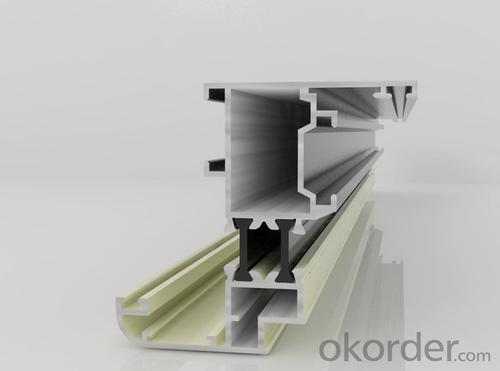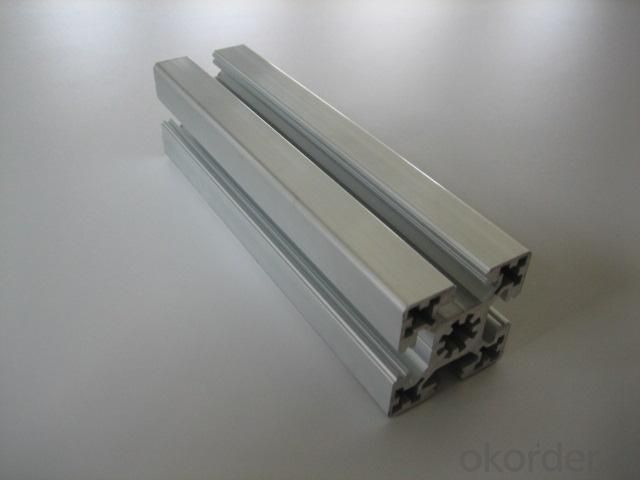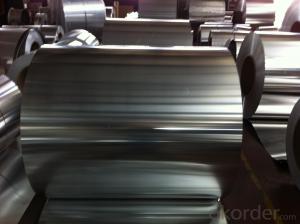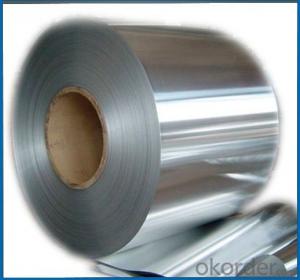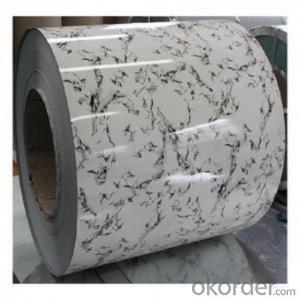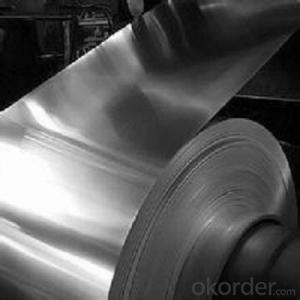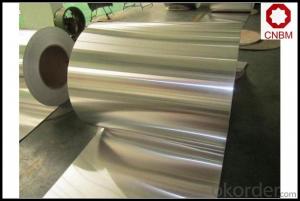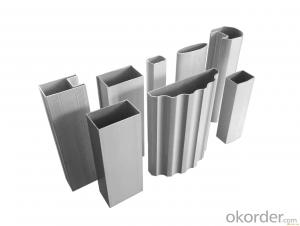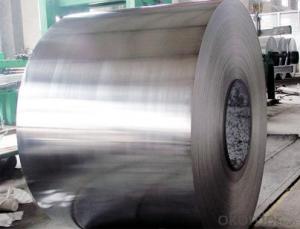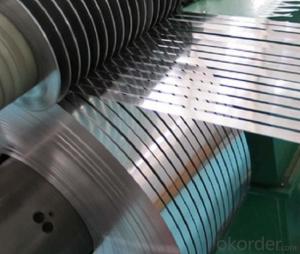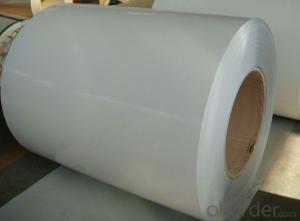Customized Coated Aluminum Coil for Aluminium Alloy Profile for Window and Door in China
- Loading Port:
- Shanghai
- Payment Terms:
- TT OR LC
- Min Order Qty:
- 20 m.t.
- Supply Capability:
- 2000 m.t./month
OKorder Service Pledge
OKorder Financial Service
You Might Also Like
1.Structure of Aluminium Alloy Profile for Window and Door Description:
Aluminium Alloy Profile for Window and Door(also spelled anodising, particularly in the UK and Australia) is an electrolytic passivation process used to increase the thickness of the natural oxide layer on the surface of metal parts. Anodized aluminium surfaces, for example, are harder than aluminium but have low to moderate wear resistance that can be improved with increasing thickness or by applying suitable sealing substances.
2.Main Features of the Aluminium Alloy Profile for Window and Door:
High corrosion-resistance;
weather-resistance;
heat-resistance;
alkali-resistance and impact-resistance properties.
3.Aluminium Alloy Profile for Window and Door Images:
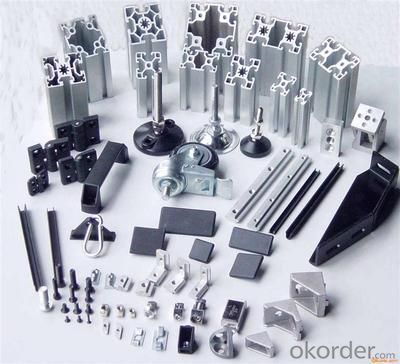
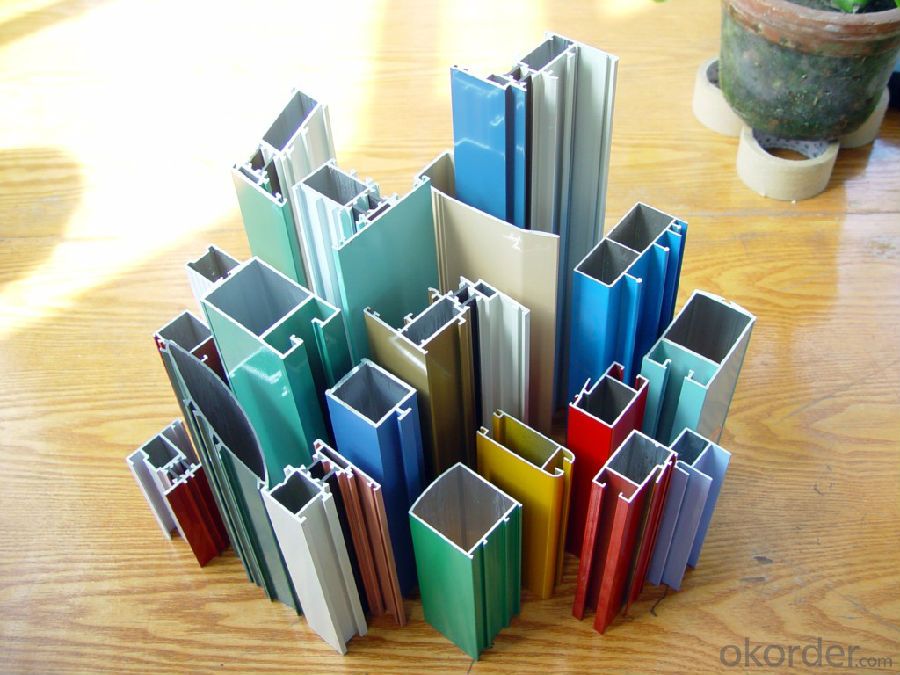
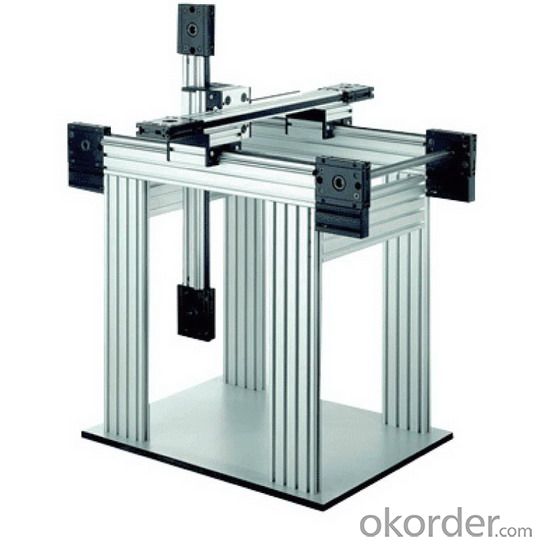
4.Aluminium Alloy Profile for Window and Door Specification:
1. Material: 6063,6061,6060,6005,6005A,etc.
2. Temper: T5 or T6
3. Finish: Mill finish, anodizing, powder coating, electrophoresis, wooden transfer or pvdf/carbon-flouride coated, polishing, brushing, sand blasting
4. Various colors: Silver, bronze, black, gold, blue, grey, champagne, bright, etc.
5. Machining: Cutting, punching, drilling, tapping, milling, bending, welding, CNC etc.
5.FAQ:
①How about your company?
A world class manufacturer & supplier of castings forging in carbon steel and alloy steel,is one of the large-scale professional investment casting production bases in China, consisting of both casting foundry forging and machining factory. Annually more than 8000 tons Precision casting and forging parts are exported to markets in Europe, America and Japan. OEM casting and forging service available according to customer’s requirements.
②How to guarantee the quality of the products?
We have established the international advanced quality management system,every link from raw material to final product we have strict quality test;We resolutely put an end to unqualified products flowing into the market. At the same time, we will provide necessary follow-up service assurance.
- Q: How do aluminum coils contribute to lightweight transportation?
- Aluminum coils contribute significantly to lightweight transportation due to their inherent properties and versatile applications. Firstly, aluminum is a lightweight material itself, with a density one-third that of steel. This makes it an ideal choice for constructing various components of transportation vehicles such as cars, airplanes, and trains. When it comes to manufacturing aluminum coils, they are typically produced through a continuous casting and rolling process, resulting in a coil shape that is easy to transport and handle. These coils can be further processed into sheets, plates, or other forms, depending on the specific requirements of the transportation industry. The lightweight nature of aluminum coils offers several advantages for transportation. Firstly, it reduces the overall weight of the vehicle, leading to improved fuel efficiency and reduced emissions. Lighter vehicles require less energy to move, resulting in cost savings and environmental benefits. Additionally, the reduced weight allows for increased payload capacity, enabling transportation companies to carry more goods or passengers without exceeding weight limitations. Furthermore, aluminum coils possess excellent corrosion resistance, ensuring the longevity of transportation vehicles even in harsh environments. This durability reduces maintenance and replacement costs, making aluminum an economically viable choice for lightweight transportation. Moreover, aluminum coils offer excellent formability and can be easily shaped into different designs, allowing manufacturers to create aerodynamic structures that further enhance fuel efficiency. This flexibility in design enables the production of vehicles with reduced drag and improved performance, contributing to lightweight transportation. In conclusion, aluminum coils play a crucial role in lightweight transportation by providing a lightweight, durable, and corrosion-resistant material. Their utilization in various transportation components helps reduce overall vehicle weight, improve fuel efficiency, increase payload capacity, and enhance aerodynamics. As the transportation industry continues to prioritize sustainability and efficiency, aluminum coils will continue to play a significant role in achieving these goals.
- Q: I am wondering if a deodorant made with aluminum silicate is safer than one with aluminum salt.
- aluminum silicates have been used in deodorants for years. there was a time when it was thought that the Al in the deodorants was causing alzheimers but that has been shown to be wrong. if there are other dangers to the silicates, we haven't found them or they aren't that bad
- Q: How are aluminum coils used in heating, ventilation, and air conditioning (HVAC) systems?
- Aluminum coils are commonly used in HVAC systems as they serve as heat exchangers. These coils are responsible for transferring heat between the indoor and outdoor units of an HVAC system. The aluminum coils are designed to efficiently absorb heat from the indoor air and release it outside, or vice versa, depending on whether the system is in cooling or heating mode. The use of aluminum coils in HVAC systems ensures better heat transfer, corrosion resistance, and overall system performance.
- Q: Can aluminum coils be used in refrigeration systems?
- Indeed, refrigeration systems can utilize aluminum coils. The rationale behind selecting aluminum as the preferred material for coil construction in refrigeration systems stems from its remarkable heat transfer capabilities and resistance to corrosion. Not only are aluminum coils lightweight and long-lasting, but they also excel in efficiently transferring heat, rendering them appropriate for a wide range of refrigeration applications, including air conditioning units, refrigerators, and freezers. Moreover, aluminum coils offer the advantage of being easier to mold and install in comparison to alternative materials, thus solidifying their position as the top choice among manufacturers.
- Q: Can aluminum coils be used in the manufacturing of beverage cans?
- Yes, aluminum coils can be used in the manufacturing of beverage cans. Aluminum coils are commonly used in the production of beverage cans due to their lightweight, corrosion-resistant, and malleable properties. These coils are processed and shaped into cans during the manufacturing process, providing a durable and cost-effective solution for packaging beverages.
- Q: Are aluminum coils easy to install?
- Aluminum coils, in general, prove to be easily installed. Their lightweight and flexibility contribute to their manageable handling and maneuverability during installation. They can be effortlessly cut and molded to suit the precise installation requirements. Moreover, they are frequently obtainable in pre-cut dimensions, further streamlining the installation procedure. Additionally, aluminum coils usually incorporate interlocking edges or snap-on connectors, facilitating the connection of multiple coils or other components. All in all, with appropriate tools and fundamental HVAC installation knowledge, aluminum coils can be readily installed.
- Q: Are aluminum coils suitable for low-maintenance applications?
- Yes, aluminum coils are suitable for low-maintenance applications. Aluminum is known for its durability and resistance to corrosion, making it an excellent choice for applications that require minimal upkeep. Unlike other materials, such as steel, aluminum coils do not rust or require regular painting to maintain their appearance. Additionally, aluminum is lightweight, which can make installation and handling easier, especially in low-maintenance applications where frequent maintenance may not be feasible or desirable. Overall, aluminum coils offer a reliable and low-maintenance solution for various applications.
- Q: I am a college student living in a private apartment and I use up lots of aluminium foils to cook and eat. I use aluminium foils as plates because I am too lazy to clean plates. I want to know how environment-unfriendly i am for doing so. How bad am I compared to the guy who keeps on drinking from cans without recycling them?
- Are you recycling them? If so it could be quite interseting as you are not using detergent and water to wash up? Who knows? How bad do you feel? I imagine that it's not great in the big scheme of things as re-using is the best option before re-cycling.
- Q: Is it possible to use a saw to cut aluminum coils?
- <p>Yes, aluminum coils can be cut with a saw, but it's important to use the right type of saw. A hacksaw or a fine-toothed metal cutting saw is suitable for cutting aluminum. Lubrication is also crucial to reduce friction and prevent the saw blade from overheating. When cutting aluminum, it's advisable to use a cutting fluid or a light machine oil to keep the blade cool and ensure a clean, smooth cut. Always follow safety precautions and wear appropriate protective gear when cutting metal.</p>
- Q: This question asks about the impact of aluminum coils on food quality, considering possible effects on taste, safety, and preservation.
- <p>Aluminum coils, when used in cooking or food packaging, can potentially affect the quality of food. If aluminum leaches into the food, it may alter the taste and could pose health risks due to aluminum's neurotoxic properties. However, modern food-grade aluminum coils are coated or anodized to prevent such leaching, ensuring food safety. They are also used in heat transfer for cooking, which can improve the efficiency and evenness of cooking, thus enhancing food quality. It's crucial to use high-quality, food-safe aluminum coils to avoid any negative impact on food quality and safety.</p>
Send your message to us
Customized Coated Aluminum Coil for Aluminium Alloy Profile for Window and Door in China
- Loading Port:
- Shanghai
- Payment Terms:
- TT OR LC
- Min Order Qty:
- 20 m.t.
- Supply Capability:
- 2000 m.t./month
OKorder Service Pledge
OKorder Financial Service
Similar products
Hot products
Hot Searches
Related keywords
